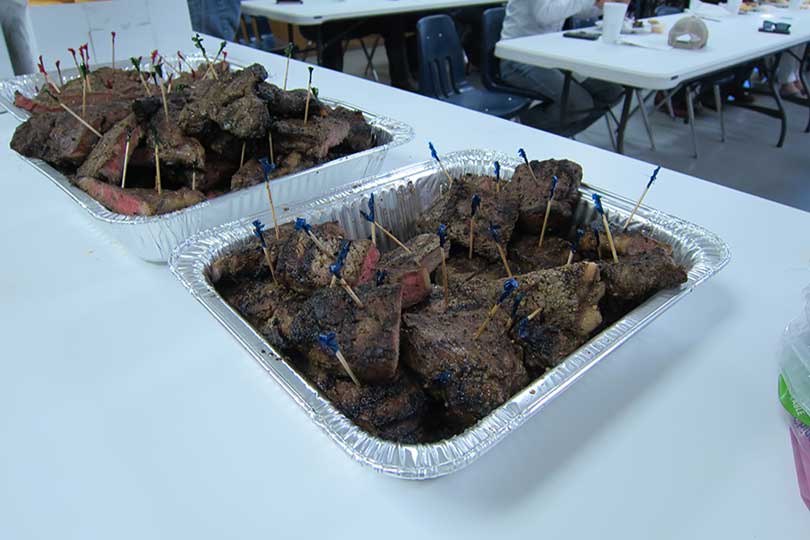There has been a steady decline in meat consumption in the U.S. over the past decade. It has fallen 14 percent, and that has Texas A&M AgriLife Research scientist and animal science professor Dr. Guoyao Wu concerned.
Wu co-authored a paper, which examines the composition of amino acids in certain cuts of beef, that was published in the American Society of Animal Science.
Wu said misinformation about proteins and fats in meats has led to many consumers eating less meat or no meat at all.
But meat has many health benefits that plant-based proteins cannot provide, according to Wu. Animal meat contains taurine and carnosine, which are important to protect the gut, skin, heart, eyes and other organs.
“People on a vegan diet tend to forget how important high-quality protein is to human growth and health,” Wu told AgriLife Today. “If you look at the population of some Asian countries, most males are short and the children are stunted. Twenty years ago, one-third of the children were stunted. Now, less than 10 percent are stunted because of increased consumption of animal source protein in their diets.”
The antioxidants found in meat are “essential for children and conditionally essential for adults to maintain retinal and cardiac function,” the journal article said.
Wu noted the lack of animal meat or protein from a diet contributes to skeletal muscle loss.
The U.S. diet is low in vegetables, fruit and whole grains and too high in calories, saturated fat, sodium, refined grains and added sugars, according to the 2015 U.S. Department of Agriculture Dietary Guidelines Committee report. More than two-thirds of adults and nearly one-third of children and youth are obese or overweight.
Parents who do not cook meat or serve insufficient meats at home and prepare meals that have little or no animal protein are factors that have led to the rise in childhood obesity, Wu said.
“Children especially need meat to build skeletal muscle,” Wu said. “They are at a critical stage in their lives as their bodies continue to develop and mature. Without sufficient sources of protein, their muscle, bones and other organs will not develop properly, which will lead to health problems later in life.”
The amino acid composition in animal protein is more balanced than in plant protein, Wu noted.
“Our country has the greatest abundance of protein, but some choose to live such an unhealthy lifestyle,” Wu said.


The reason for the decline is because it’s gotten so expensive we, consumers can no longer afford it, plus the fact now meat is being imported from other countries!
Don’t believe it. This is just some political hack to convince the rancher that beef demand is down. So why the is the USA importing Brazilian Beef? Trying to put US beef producers out of business.
Last week or so its reported that we have a large import of Brazilian Beef. Now you are trying to claim that people are eating less beef. It more sounds like you are trying to manipulate the rancher’s into believing your lies. I think that the Farm Bureau had sold us out and that is why beef prices for the American Rancher are low solely because of imports that the Fatm Bureau support in legislation. I don’t buy into your political manipulation. Our import laws that harm the American Rancher are the problem, not Americans are eating less beef.
BEEF it should be “what’s for dinner”
It is my understanding that the correct mixture of plant-based proteins are just as beneficial and soluble to the human body. Ex: pea and brown rice protein mixture supplies the complete amino acids needed for muscle growth. Not to mention the beef in the US is full of hormones and pesticides. I think maybe this doctor is somehow supported by the meat industry.
It’s all about cost…meat is high in the store’s…. Last 8 months Cattle prices have dropped and meat prices have gone up…..